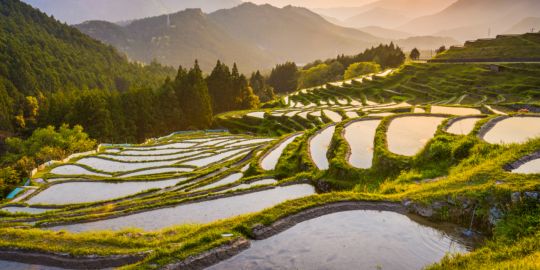Hello everyone,
We all know Japanese food tastes great. Do you consider yourself a foodie? Share with us your unique food experience as an expat.
1. Name 3 best well-known Japanese street foods according to you.
2. Which are some unusual dishes that you have discovered ?
3. What makes up the typical breakfast in Japan?
4. Name 3 of your favourite festive dishes.
5. According to you, which essential ingredient defines Japanese cuisine?
Thanks for participating,
Diksha
Just for fun: Food culture in Japan
I consider myself very much a foodie and I absolutely love Japanese food. In fact one of my favourite places to visit is the small port of Numazu in Shizuoka Prefecture just west of the Izu peninsula where the locals boast that the sea food is fresher here than in Tokyo.
1. Three best well-known Japanese street foods in my opinion are Taiyaki which are fish shaped cakes usually filled with custard but sometimes with other fillings, Yakitori which is grilled chicken or other foods on a bamboo skewer, and Shioyaki which are salted mackerel on a stick.
2. Some of the more unusual dishes that I have treid are Natto (I am not a fan of this food), fish heads (although this dish is eaten in many places in Asia I am not a fan because here is is often simply steamed in stead of being cooked in a delicious rich and tasty sauce), and Takoyaki which is like a balled shaped pancake with a pirce of octopus in the middle.
3. I have only tried a typical Japanese breakfast a few times when served in hotels such as at the Mars Garden Wood hotel in Gotemba. The breakfast consisted of a tray of many small dishes including fish, egg, pickled vegetables and miso soup. The food was not the most tasty but the experience was interesting.
4. Three of my favourite Japanese festive foods include Yakitori, Karaage and Taiyaki with a red bean paste filling.
5. This is difficult because Japanese food is so varied. I could say Kikkoman soy sauce or wasabi but that only applies to a few dishes, or kewpie mayonaise for foods like tempura, or even Japanese rice as this is better than most others, but since it is my own personal favourite then I would say fresh sea food since I am a big fan of it.
The food culture is a big part of why I live in Japan and it varies greatly from area to area and from season to season. There is a lot to explore with food and it is best to get into the local hole in the wall places to experience the taste of real Japan.
1. The three best well-known street foods in my opinion are ramen, which is the ultimate cheap, tasty and filling fast food dish in Japan, yakitori which is a classic Japanese treat of chicken skewers grilled over charcoal, and takoyaki, which are golden balls of fried batter filled with a little piece of octopus.
2. Some unusual dishes that I have tried in Japan include shirako, a delicacy sold at restaurants that is basically fish sperm, and nankotsu, which is chicken cartilage, and can be found in izakaya (Japanese style pubs) and yakitori restaurants.
3. A typical traditional style Japanese breakfast is very healthy and a great start to the day. It usually includes steamed rice, miso soup, fish, tamagoyaki, natto and pickled vegetables.
4. Three of my favourite festival dishes include yakisoba, which is fried noodles with pork, cabbage, onions topped with a fried egg and Japanese mayonnaise, karaage, which is Japanese style fried chicken on a stick, and kakigori, which is shaved ice topped with a flavoured syrup such as strawberry, matcha or melon. This tasty treat is best eaten in summer while wearing a yukata at a Japanese festival.
5. The essential ingredient that defines Japanese cuisine is dashi (stock). Dashi is what gives Japanese food umami, which is said to be the fifth taste after sweetness, sourness, saltiness and bitterness.
That's one thing that unfortunately I do not eat these days, pork. A lot of Japanese food includes pork, and I have found the same not just in Chinese culture but also in Korean culture. Thankfully I absolutely love fresh seafood of which there seems to be an unlimited supply everywhere, and this is one of the reasons I love Japan so much.








